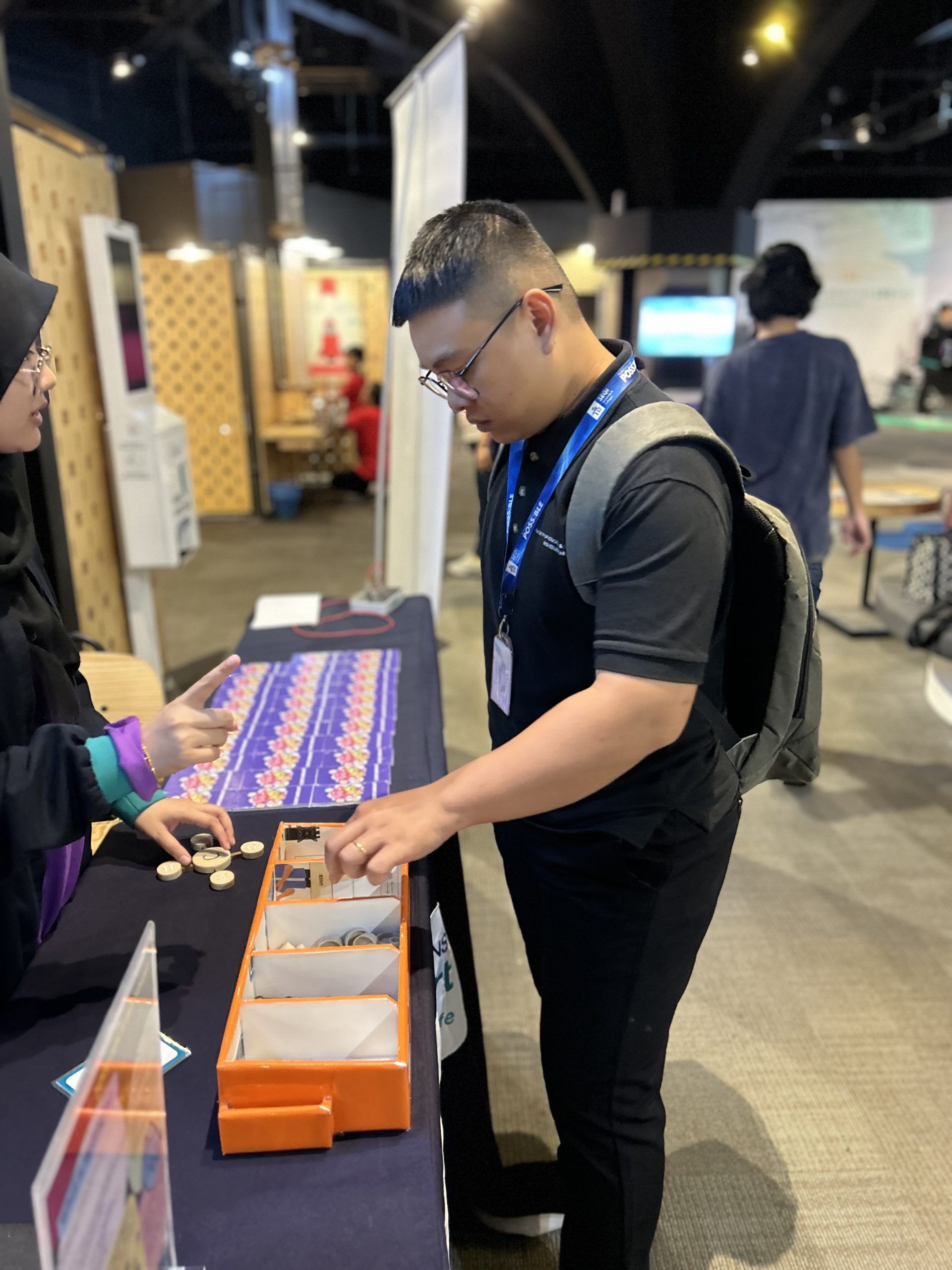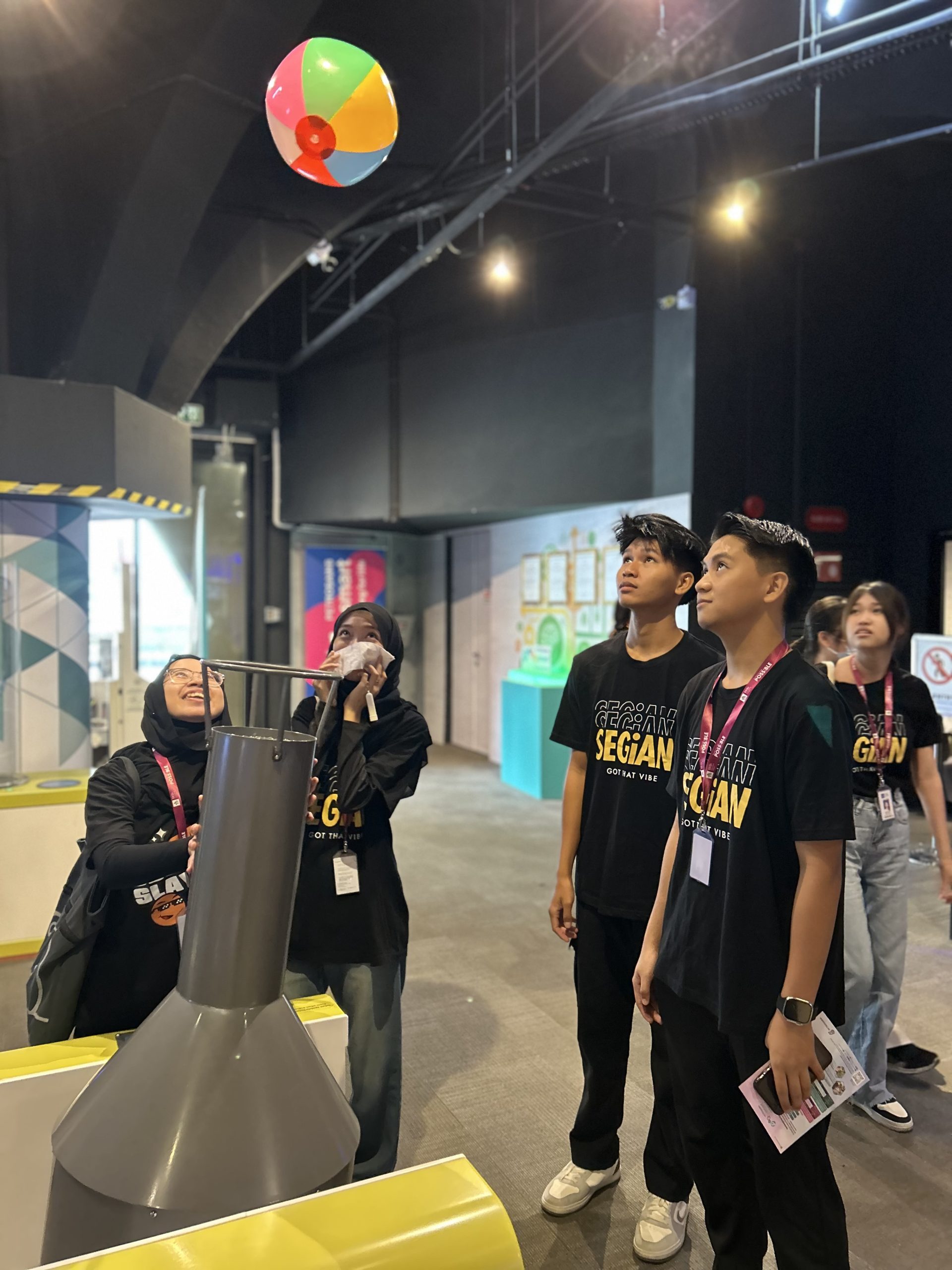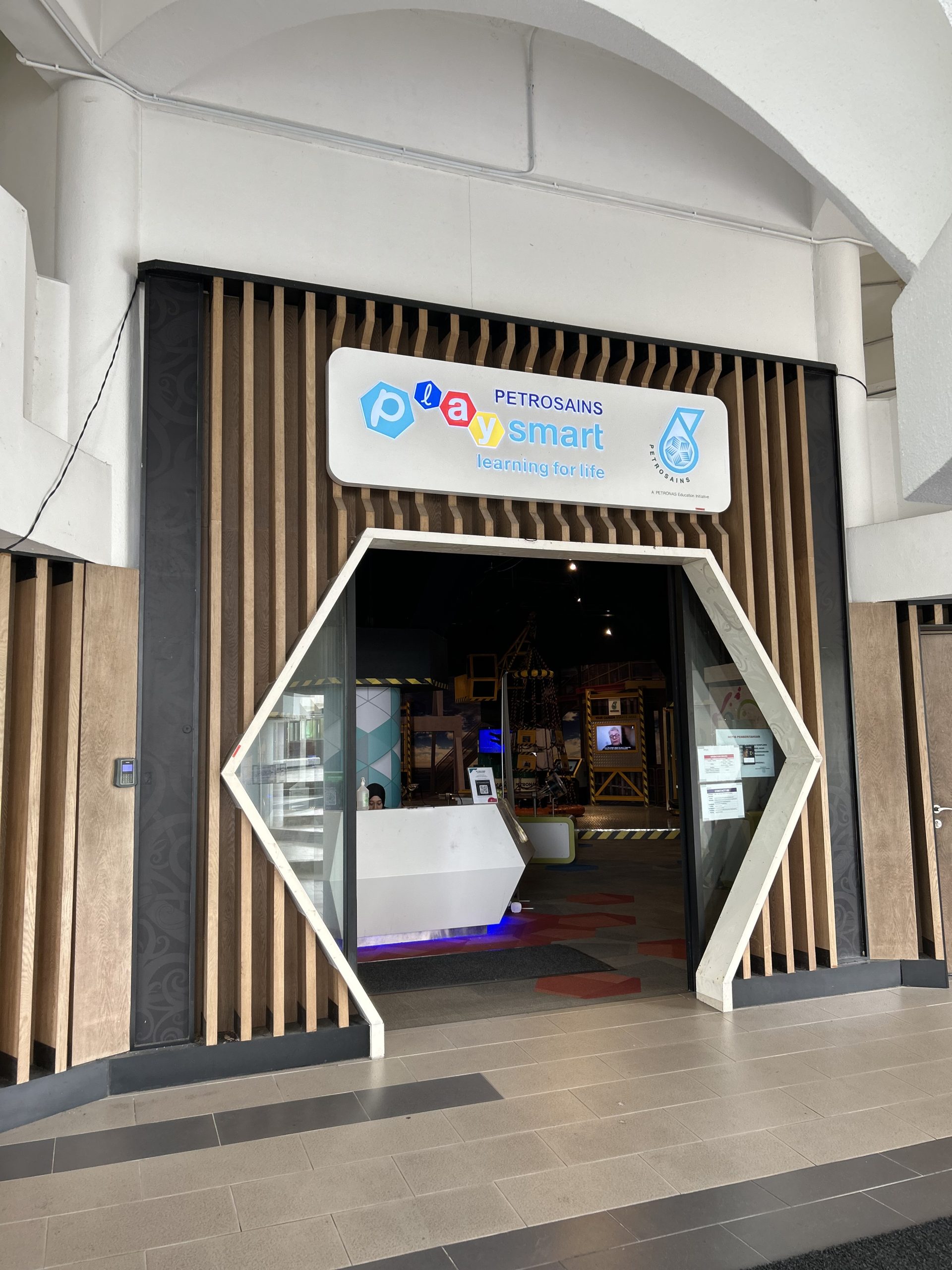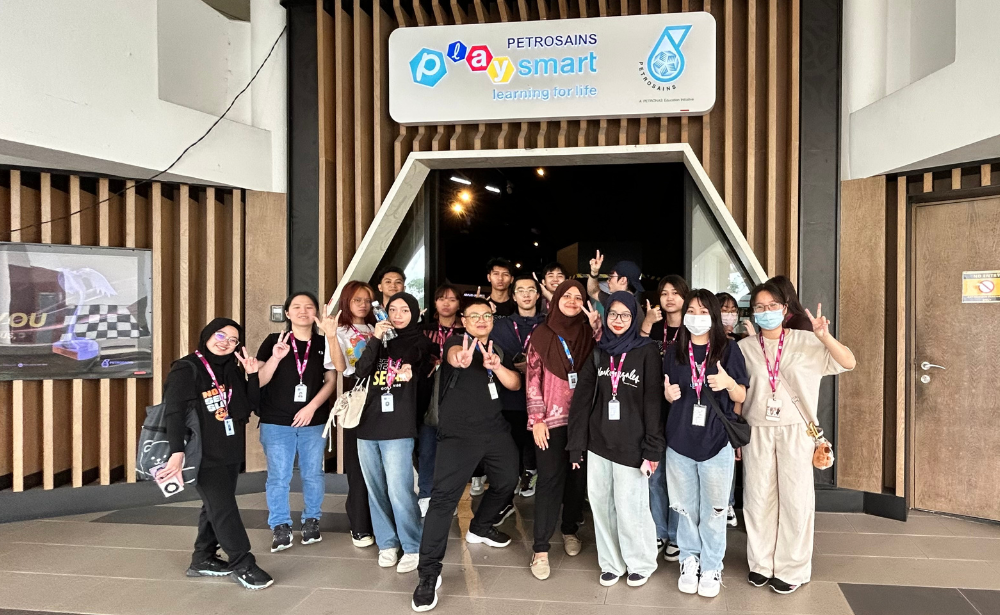A group of 15 aspiring educators from the Diploma in Psychology (DIPSY) and Bachelor of Education (B.Ed) programmes at SEGi recently took part in an educational visit to Petrosains PlaySmart, Sarawak’s hub for interactive science learning. The initiative was designed to inspire the next generation of teachers by immersing them in playful, hands-on methods of delivering science education — a critical need in shaping future-ready learners.
Guided by two passionate SEGi lecturers, the students explored a range of exhibits focused on motion, energy, simple machines, and digital learning. The experience was more than a field trip — it was a platform for real-world learning where future teachers could see first-hand how science can be taught through curiosity and creativity. According to UNESCO, children exposed to interactive STEM learning in early education are more likely to develop critical thinking and problem-solving skills essential for a fast-evolving global economy.
The visit highlighted the role of experiential learning in creating engaging classroom environments. Through hands-on activities and 3D digital exhibits, the students discovered how to break down complex scientific concepts into fun, age-appropriate learning experiences. This aligns with Malaysia’s broader push to boost STEM literacy among youth, as current statistics show that fewer than 45% of upper secondary students are enrolled in science streams.
A live science demonstration offered practical teaching techniques that could be replicated in early childhood and primary settings. The students observed how everyday items can be turned into powerful teaching tools — reinforcing the idea that effective science education doesn’t require expensive resources, just creative educators. Many left the session inspired to adapt these playful methods in their future classrooms, helping children connect learning to the world around them.
This initiative underscores SEGi College Sarawak’s belief that educators are not just transmitters of knowledge but facilitators of wonder. Providing future teachers with these types of real-world experiences is crucial in developing more inclusive, learner-centred classrooms — especially in rural and underserved areas where engagement is key. The goal is clear: to empower future educators to spark scientific curiosity and confidence in every child, regardless of background.
The visit also reflects SEGi’s commitment to embedding global values into its programmes by supporting the nation’s education goals while aligning with international benchmarks for quality education. Students not only engaged with science but also witnessed the power of collaborative, informal learning environments — a crucial tool in addressing learning inequalities and building resilient education systems.
This event is organised in support of the following United Nations Sustainable Development Goals (SDG):
SDG 4 – Quality Education
SDG 9 – Industry, Innovation and Infrastructure
SDG 17 – Partnerships for the Goals




